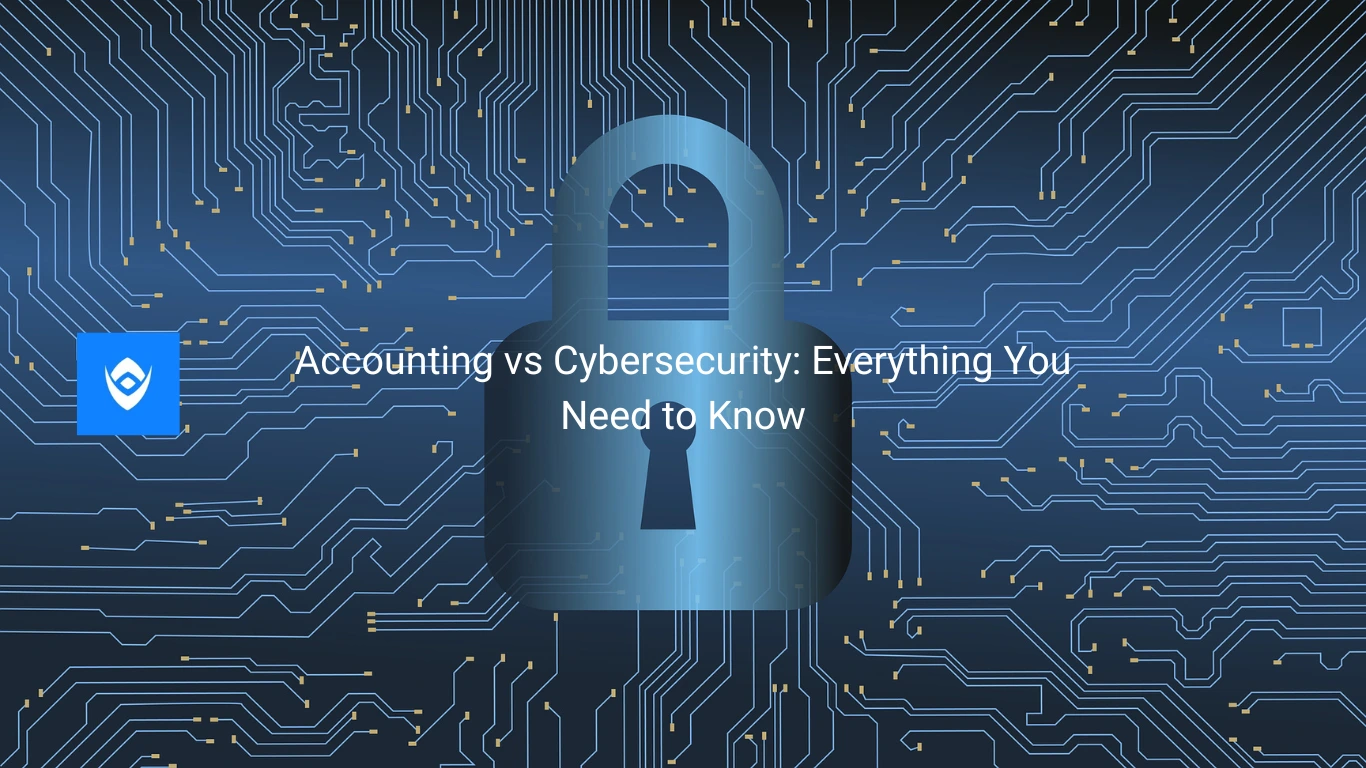
Accounting vs Cybersecurity: Everything You Need to Know
Accounting vs Cybersecurity: Everything You Need to Know
Accounting has long been a cornerstone of business operations, ensuring that companies remain financially sound and compliant, and Financial technology (Fintech) is the lifeblood of accountants these days.
Whether accountants work for private clients or operate services for larger firms on a public level, they need the tools, software, and technology for accurately and quickly tracking finances and auditing systems.
And now, with a more digital scope, Fintech has been plagued by more threats than ever before. Accountants must make data protection one of their top priorities. For this, cybersecurity has emerged as a vital safeguard against increasingly sophisticated cyber threats, protecting sensitive data and critical infrastructures.
As businesses lean more heavily on technology, the line between these fields is blurring, sparking debates like those seen on Cybersecurity vs Accounting Reddit forums. For those exploring career opportunities or considering switching from accounting to cybersecurity, understanding the key differences, opportunities, and challenges can help guide an informed decision.
This article, Accounting vs Cybersecurity, provides a comprehensive comparison of accounting and cybersecurity, exploring their unique characteristics, career trajectories, and why, in many cases, cybersecurity may offer the edge for future-focused professionals.

Start a Life-Changing Career in Cybersecurity Today
The Role of Accountants and Cybersecurity Experts in Business
Accountants and cybersecurity professionals both play pivotal roles in modern businesses, but their contributions differ significantly in scope and focus.
Accountants: Guardians of Financial Integrity
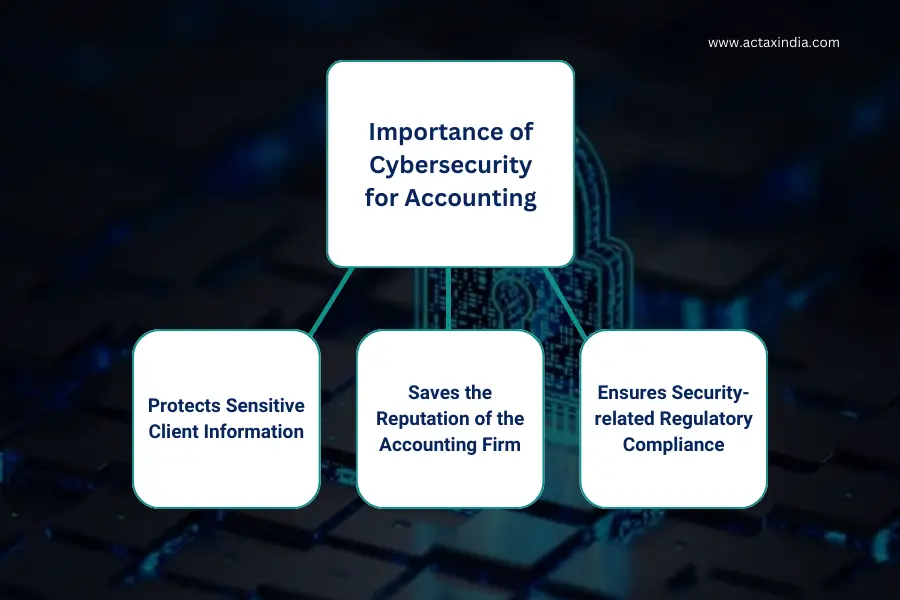
Accountants are essential for maintaining a company’s financial health. They prepare financial statements, ensure compliance with regulations, and advise on tax strategies. Whether working as auditors, financial analysts, or Certified Public Accountants (CPAs), accountants assess risks tied to financial operations and propose strategies to mitigate them.
Key responsibilities include:
- Tracking revenues, expenses, and overall profitability.
- Preparing accurate tax filings and financial reports.
- Evaluating financial risks and ensuring regulatory compliance.
In forums like IT vs Accounting Reddit, you’ll often see debates emphasizing accounting’s structured career paths and steady growth potential. For instance, the average accounting salary ranges from $55,000 to over $120,000 annually, depending on specialization and experience.
Cybersecurity Experts: Protectors of the Digital Frontier
Cybersecurity professionals, on the other hand, are tasked with defending an organization’s digital assets against a constantly evolving array of threats. Their work spans identifying vulnerabilities, monitoring systems for breaches, and developing robust security protocols to safeguard sensitive information.
With cybercrime costing companies billions annually, the demand for cybersecurity experts has skyrocketed. Many professionals in the field earn salaries similar to or exceeding those of accountants. On average, a cybersecurity analyst earns between $70,000 and $150,000 annually, depending on qualifications and location, making the Accounting Cyber Security salary comparison a crucial factor for career-switchers.
Key responsibilities include:
- Protecting networks, databases, and systems from unauthorized access.
- Responding to security incidents and mitigating risks.
- Educating employees about cyber threats such as phishing and malware.
Cybersecurity experts, like accountants, play a proactive role in identifying risks. However, while accountants mitigate financial risks, cybersecurity professionals tackle technical vulnerabilities, often focusing on the long-term digital resilience of businesses.
ALSO READ: Can You Learn Cybersecurity on Your Own
Accounting vs Cybersecurity: Required Skills and Career Paths
The pathways to becoming an accountant or a cybersecurity professional differ, as do the skill sets required for success. Exploring these distinctions helps clarify which career might align better with your interests and strengths.
Skills Needed for Accounting
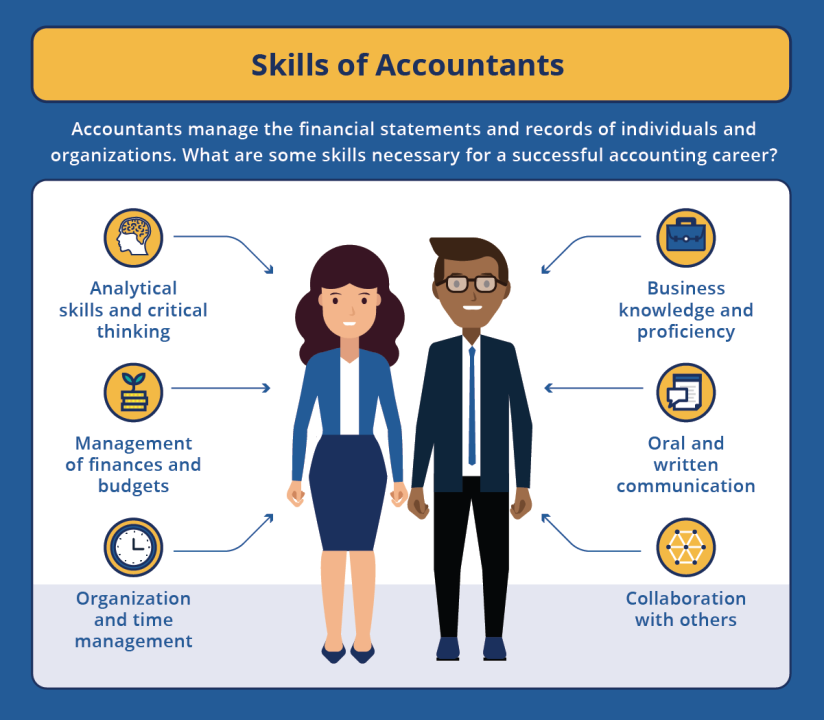
Accountants rely on a strong foundation in mathematics, attention to detail, and an understanding of financial laws and regulations. They must interpret complex data accurately and communicate findings effectively to stakeholders.
Key skills include:
- Analytical thinking: Evaluating financial data to identify trends and discrepancies.
- Communication: Simplifying financial concepts for clients or team members.
- Attention to detail: Ensuring accuracy in financial statements and compliance documents.
- Technological proficiency: Familiarity with accounting software like QuickBooks or SAP.
To start a career in accounting, a bachelor’s degree in accounting or finance is typically required. Many professionals enhance their credentials with certifications like CPA (Certified Public Accountant) or CMA (Certified Management Accountant).
Skills Needed for Cybersecurity
Cybersecurity professionals must think like adversaries to identify and mitigate digital threats. This field demands a mix of technical expertise, problem-solving, and proactive risk management.
Key skills include:
- Technical knowledge: Understanding networks, operating systems, and programming languages like Python or Java.
- Risk assessment: Identifying vulnerabilities and implementing preventative measures.
- Critical thinking: Responding to attacks in real time with precision.
- Communication: Explaining technical issues to non-technical stakeholders.
Unlike accounting, cybersecurity offers a variety of entry points. While a degree in computer science or cybersecurity is beneficial, certifications like CompTIA Security+ or CISSP (Certified Information Systems Security Professional) can help fast-track a career.
Comparing Career Paths
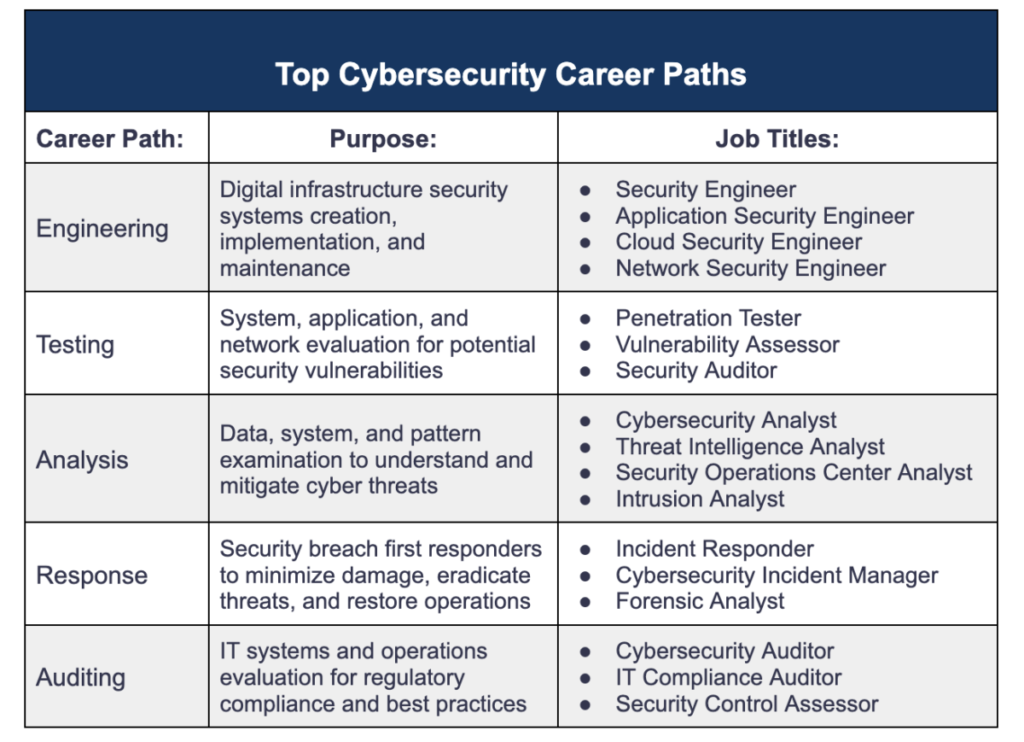
- Accountants often follow a structured trajectory, with entry-level positions leading to senior roles like financial controller or CFO.
- Cybersecurity professionals face a more dynamic career landscape. Roles like penetration testers, security engineers, or analysts can evolve into chief information security officer (CISO) positions.
In Accounting vs IT Reddit discussions, many professionals highlight cybersecurity’s versatility and rapid career progression, especially with the increasing reliance on digital infrastructure. Additionally, transitioning from Accounting to Cybersecurity is a viable option for those looking to leverage transferable skills like analytical thinking and attention to detail.
OTHERS LIKE THIS: How to Start a Cybersecurity Firm
Salary Comparisons: Accounting vs Cybersecurity
When it comes to career decisions, compensation often plays a significant role. Both accounting and cybersecurity offer competitive salaries, but the earning potential varies depending on factors such as experience, education, and industry demand.
Accounting Salary
Accountants generally enjoy steady salary growth as they gain experience and certifications. According to the U.S. Bureau of Labor Statistics (BLS), the median annual wage for accountants and auditors in 2023 was approximately $80,000, with top earners in specialized roles or industries making well over $120,000.
- Entry-level: Around $55,000 to $65,000, depending on location and firm size.
- Mid-level: Certified professionals like CPAs often see salaries climb to $85,000 to $100,000.
- High-level: Senior roles such as CFOs or financial controllers can earn $150,000+.
Cybersecurity Salary
Cybersecurity professionals tend to command higher starting salaries, reflecting the field’s urgent demand and technical complexity. The BLS reports that the median annual wage for information security analysts in 2023 was approximately $112,000, with top-tier roles earning upwards of $160,000.
- Entry-level: Positions such as cybersecurity analysts start at $70,000 to $90,000, often higher with certifications like CompTIA Security+.
- Mid-level: Roles like penetration testers or security engineers typically earn $100,000 to $130,000.
- High-level: Senior positions, such as CISO, can exceed $200,000, especially in high-stakes industries like finance or healthcare.
Accounting Cyber Security Salary Overlap
Interestingly, some roles merge the two fields. For example, security auditors with accounting expertise can earn between $90,000 and $140,000, depending on their dual skill set. This crossover role is ideal for accountants interested in cybersecurity, offering both financial and professional rewards.
Why Cybersecurity Often Wins
In comparing IT vs Accounting Reddit discussions, cybersecurity frequently emerges as the more lucrative field, particularly for professionals seeking rapid salary growth. While accountants can achieve high salaries, it often requires years of experience and additional certifications. Cybersecurity professionals, on the other hand, can significantly boost their income early in their careers through targeted training and certifications.
SEE MORE: The Future of Cybersecurity in the Age of AI (Artificial Intelligence)
Transitioning from Accounting to Cybersecurity: A Step-by-Step Guide
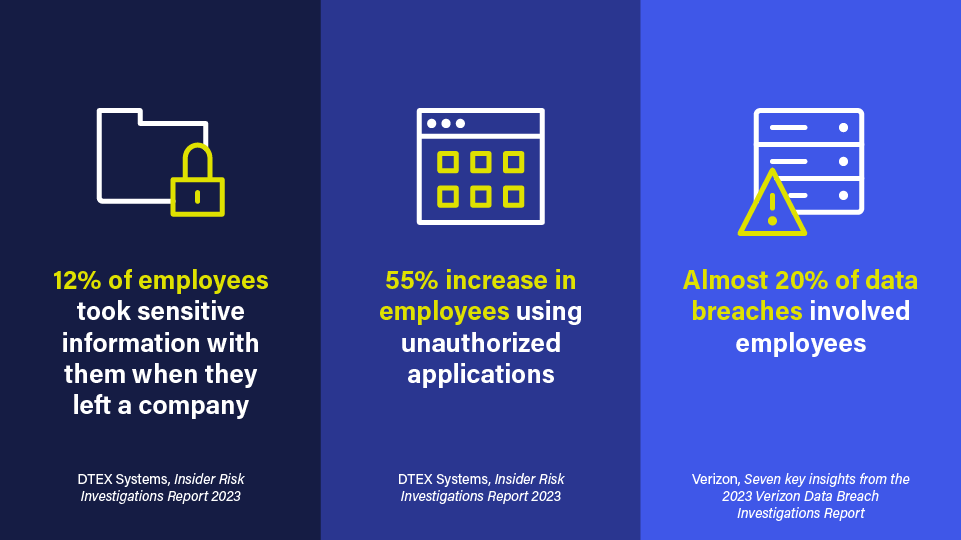
For professionals exploring the leap from accounting to cybersecurity, the journey may seem daunting but is entirely achievable. The increasing overlap between finance and technology has made transitioning easier, with transferable skills and growing opportunities for cross-disciplinary expertise.
Accounting to Cybersecurity: A Viable Path
Switching from accounting to cybersecurity is not just a possibility—it’s a smart career move for many. Both fields require analytical thinking, problem-solving, and attention to detail. Accountants, accustomed to managing sensitive financial data, are well-suited to cybersecurity roles focused on protecting critical information systems.
The transition appeals to professionals active on forums like Cyber Security or Accounting Reddit, where users often weigh the benefits of shifting from traditional financial roles to dynamic IT-related careers.
Transferable Skills from Accounting to Cybersecurity
- Analytical expertise: Both roles demand a keen ability to analyze complex data sets. Accountants can leverage these skills to assess network vulnerabilities and evaluate risks.
- Compliance knowledge: Familiarity with regulatory frameworks like SOX (Sarbanes-Oxley Act) translates well into cybersecurity, especially in roles like security auditing or compliance management.
- Detail orientation: Accountants accustomed to precision in financial reports will find it equally crucial when monitoring IT systems for breaches or anomalies.
Steps to Make the Transition
- Assess Your Current Skills: Identify areas where your accounting knowledge aligns with cybersecurity needs, such as data protection, fraud detection, or compliance.
- Earn Relevant Certifications: Certifications like CompTIA Security+, Certified Information Systems Auditor (CISA), or Certified Information Systems Security Professional (CISSP) can bridge the gap.
- Gain Technical Expertise: Enroll in cybersecurity courses to learn essential skills such as ethical hacking, network security, and incident response. Many online platforms, like Coursera and Cybrary, offer accessible programs.
- Build a Portfolio: Showcase your knowledge by volunteering for projects, taking internships, or participating in cybersecurity challenges. This practical experience strengthens your resume.
- Leverage Your Network: Connect with cybersecurity professionals on LinkedIn or attend industry events. Reddit communities like IT vs Accounting Reddit provide valuable career-switching insights.
In-Demand Crossover Roles
Transitioning doesn’t always mean starting over. Accountants stepping into cybersecurity may find roles like:
- Security Auditor: Combining accounting and IT skills to ensure compliance and protect financial systems.
- Fraud Analyst: Identifying and mitigating fraudulent activities through data analysis.
- Risk Management Specialist: Evaluating organizational risks, including cybersecurity threats.
Cybersecurity Training for Accountants
Many employers value accountants with cybersecurity expertise. Completing certifications or degrees can pave the way, but even foundational knowledge of cybersecurity concepts—like malware, phishing, and encryption—can make you a valuable asset.
This transition is not only feasible but also increasingly common, as technology reshapes every aspect of professional life.
SEE MORE: Can You Get a Job with Google Cybersecurity Certificate? Find Out How
The Verdict on Accounting vs Cybersecurity
When comparing accounting and cybersecurity, the choice ultimately comes down to personal interests, career goals, and the pace of change you’re ready to embrace. Both fields have their strengths and weaknesses, but the rapidly evolving nature of technology makes cybersecurity a compelling choice for forward-thinking professionals.
The Appeal of Cybersecurity Over Accounting
Cybersecurity offers a dynamic and rewarding career path. Unlike accounting, where core principles have remained largely unchanged for decades, cybersecurity is at the forefront of technological innovation. Cybersecurity professionals are not only well-compensated but also enjoy job security in an industry with soaring demand.
A Modern Career Choice
Forums like Cyber Security or Accounting Reddit often highlight the stagnation some professionals feel in traditional accounting roles. Cybersecurity, on the other hand, offers:
- Diverse career opportunities: From penetration testing to incident response, the options are vast and varied.
- Higher earning potential: Accounting Cyber Security salary comparisons often reveal cybersecurity professionals outpacing their accounting counterparts, particularly in senior roles.
- Future-proof skills: As digital threats evolve, so does the need for skilled cybersecurity experts.
Switching From Accounting to Cybersecurity: A Winning Move
For those with an accounting background, transitioning into cybersecurity is not only possible but highly advantageous. Transferable skills, combined with strategic certifications and training, make it easier than ever to make the leap. The journey may require effort and learning, but the rewards—both professionally and personally—are significant.
Final Takeaway
While accounting remains a respected and stable career, cybersecurity represents a world of opportunities for those ready to tackle the challenges of the digital age. If you’re an accountant seeking excitement, growth, and impact in your work, cybersecurity might just be the perfect next step.
Challenges in Each Field
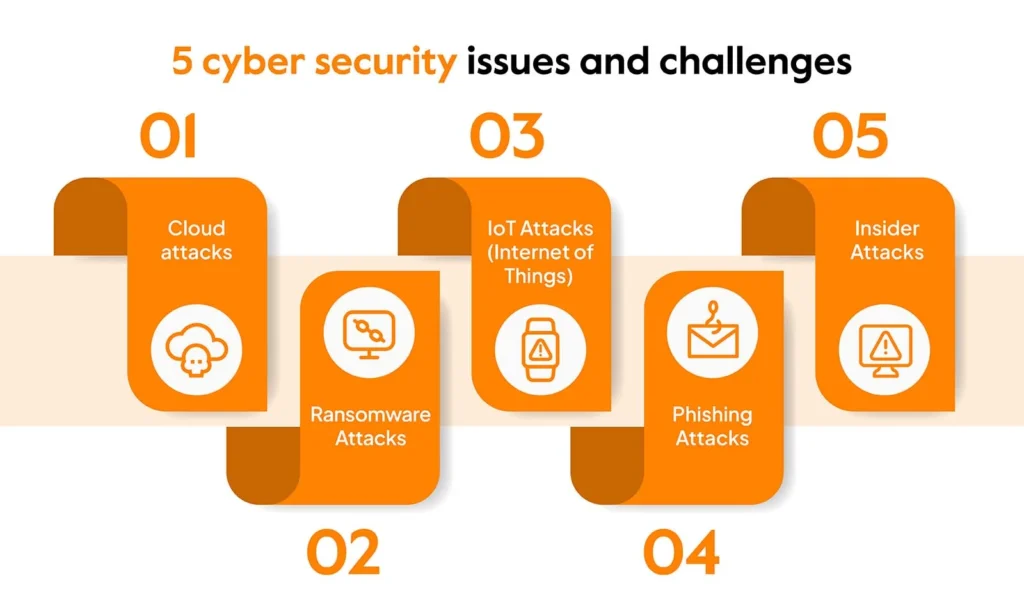
Accounting Steady but Demanding
Accounting, as a profession, comes with its own set of hurdles. One of the most widely recognized challenges is the long hours, particularly during tax season or fiscal year-end periods. These stretches can be grueling, demanding unwavering attention to detail as accountants pore over complex financial records and navigate tight deadlines.
Additionally, the field requires professionals to stay updated on ever-changing regulations. Laws governing taxation, reporting standards, and compliance are constantly evolving, requiring accountants to engage in continual learning to remain effective and relevant.
A final challenge is the repetitive nature of some accounting tasks. For those who prefer a highly dynamic work environment, the predictability of tasks such as payroll management or reconciling accounts might feel monotonous over time.
Cybersecurity: High-Stakes and Ever-Evolving
Cybersecurity, on the other hand, presents challenges of a different nature. One of the most significant is the stress associated with safeguarding digital assets. Cybersecurity professionals face high-stakes responsibilities, as a single misstep can result in devastating breaches, data loss, or financial fraud.
The fast-evolving nature of cyber threats adds another layer of complexity. Cybersecurity experts must constantly anticipate and adapt to new attack vectors, requiring ongoing training and the ability to think like an attacker. This relentless pace may overwhelm those unprepared for its demands.
Finally, the field has high entry barriers, especially in terms of technical proficiency. For individuals considering switching from accounting to cybersecurity, acquiring certifications like CISSP or Security+ and developing hands-on skills can be a significant initial hurdle.
Which Field’s Challenges Suit Different Personality Types?
For those who thrive on structure, predictability, and detailed analysis, the challenges of accounting may align well with their natural strengths. On the other hand, cybersecurity appeals to individuals who enjoy high-pressure problem-solving, staying ahead of the curve, and engaging in dynamic work environments.
The vibrant and fast-paced world of cybersecurity makes it a compelling option for professionals considering a career transition. It’s no surprise that discussions on IT vs. Accounting Reddit often reveal an increasing interest in cybersecurity for its growth potential and engaging challenges.
Who Should Choose Accounting? Who Should Choose Cybersecurity?
Accounting: For Those Who Thrive on Structure and Precision
Accounting is best suited for individuals who find satisfaction in structure, organization, and working with numbers. Professionals in this field often have a natural inclination toward meticulous analysis, ensuring every figure aligns perfectly.
Key personality traits that make someone a great fit for accounting include:
- A strong focus on detail and accuracy.
- Patience for routine and a love for processes.
- An interest in compliance and regulatory standards.
For those who value stability, the accounting profession offers a well-trodden career path with clear milestones. From entry-level roles like junior accountants to senior positions like chief financial officers (CFOs), the trajectory is predictable.
Cybersecurity: For the Tech-Savvy Problem Solver
Cybersecurity, by contrast, appeals to those who are tech-oriented and enjoy tackling complex problems under pressure. It’s a field for individuals with a natural curiosity about how systems work—and how they can be exploited.
Key traits for a cybersecurity professional include:
- A passion for technology and staying updated with the latest trends.
- The ability to think critically and creatively when solving problems.
- Comfort with fast-paced environments where adaptability is crucial.
Cybersecurity also offers excitement for those who prefer a non-linear career path. The industry is dynamic, with roles ranging from penetration testers to security architects and even ethical hackers. Growth opportunities abound as technology and cyber threats evolve.
Long-Term Growth and Satisfaction: Accounting vs Cybersecurity
In terms of career satisfaction, many professionals on platforms like “Cyber Security or Accounting Reddit” have expressed that cybersecurity offers a sense of purpose and excitement, particularly when preventing breaches or tackling a significant security threat. The growing demand for cybersecurity experts also means higher job security and lucrative salaries.
Accounting, while stable, can feel less rewarding for those seeking dynamic work environments. This difference is why more professionals are switching from accounting to cybersecurity, recognizing the opportunity for intellectual stimulation and higher earning potential.
Making the Choice
Ultimately, the decision comes down to personal preferences and long-term goals. If you thrive on precision, structure, and number crunching, accounting may be the right fit. However, if you’re drawn to technology, innovation, and the thrill of problem-solving, cybersecurity might be the career you were meant for.
The Intersection of Accounting and Cybersecurity
A Growing Overlap: Accounting Professionals in Cybersecurity
As technology becomes integral to financial systems, the boundaries between accounting and cybersecurity are beginning to blur. Accountants are increasingly stepping into roles that involve safeguarding sensitive financial data, ensuring that their firms meet strict compliance standards, and preventing fraud. This overlap is driving demand for accountants with a working knowledge of cybersecurity principles.
Protecting Financial Data in a Digital World
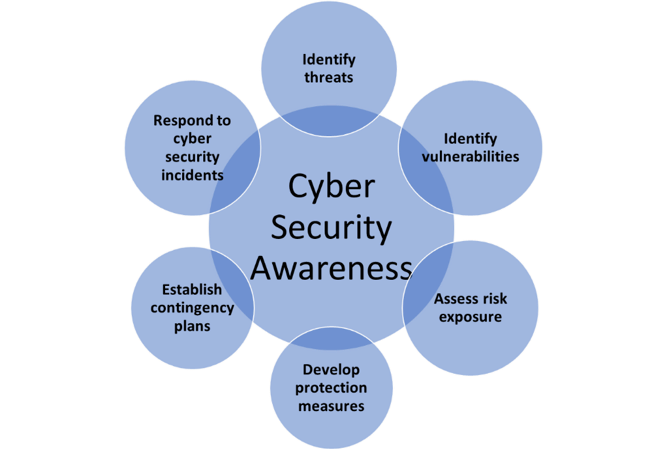
With businesses storing vast amounts of financial information digitally, the risks of cyberattacks have never been higher. Accountants often play a pivotal role in protecting this data by implementing robust internal controls and conducting audits that include cybersecurity measures. Familiarity with frameworks like SOC 2 or ISO 27001 is becoming a valuable asset for accounting professionals.
Auditing and Compliance: The Cybersecurity Angle
Internal audits are no longer just about financial accuracy; they now encompass an organization’s cyber risk management. Accountants with expertise in data security are uniquely positioned to conduct these evaluations, blending their knowledge of financial compliance with technical assessments of cybersecurity protocols. Certifications like CISA (Certified Information Systems Auditor) are especially beneficial for those looking to bridge the two fields.
Examples of Successful Cross-Disciplinary Professionals
Discussions on forums like “IT vs. Accounting Reddit” highlight real-life stories of professionals transitioning from accounting to cybersecurity. Many find that their analytical mindset and attention to detail translate seamlessly into cybersecurity roles like risk management or compliance auditing. Some have even pursued dual roles, using their accounting background to inform their cybersecurity strategies.
The Strategic Advantage of Blending Both Disciplines
For those contemplating switching from accounting to cybersecurity, understanding the intersection between these fields offers a strategic advantage. Cybersecurity expertise enhances an accountant’s ability to protect financial systems, while an accounting background equips cybersecurity professionals to better address financial fraud and compliance issues.
The integration of these two disciplines is increasingly vital, making this an exciting area for growth and innovation.
Conclusion
The comparison between accounting and cybersecurity highlights two distinct yet increasingly interconnected career paths. Accounting offers structure, precision, and stability, making it an excellent fit for those who enjoy working with numbers and compliance frameworks. Meanwhile, cybersecurity stands out as a fast-paced, high-stakes field filled with opportunities for innovation and problem-solving.
For those debating “IT vs. Accounting Reddit” career discussions or exploring shifts like “switching from accounting to cybersecurity,” the choice ultimately depends on personal preferences and aspirations. Cybersecurity, with its dynamic challenges and growing demand, has become an attractive option for professionals seeking excitement, purpose, and competitive compensation.
The convergence of these fields also presents unique opportunities. Accountants with cybersecurity skills can safeguard financial systems against increasingly sophisticated cyber threats. Similarly, cybersecurity professionals benefit from understanding financial processes to detect fraud or ensure compliance.
Whether you choose accounting, cybersecurity, or a blend of both, the future is promising. As the digital landscape evolves, these two fields will continue to grow in relevance, offering diverse and rewarding career prospects. For those ready to explore, the path forward might not just be a choice, it could be a combination that bridges the best of both worlds.
SEE MORE: What Coding Language Should I Learn for Cyber Security?
FAQ
Can you go into cybersecurity with an accounting degree?
Yes, you can transition into cybersecurity with an accounting degree, especially if you focus on roles that leverage your analytical and compliance skills. Positions like IT auditor, risk analyst, or compliance specialist often draw on knowledge of financial systems, data analysis, and regulatory standards.
To make the switch, earning cybersecurity certifications such as CISA (Certified Information Systems Auditor), Security+, or CISSP (Certified Information Systems Security Professional) can help build your credentials and technical knowledge.
Is cybersecurity related to accounting?
Cybersecurity is becoming increasingly related to accounting as financial systems are now digital and vulnerable to cyber threats. Accountants often handle sensitive financial data, making data security a critical concern.
Additionally, internal audits and compliance reviews frequently incorporate cybersecurity measures to ensure organizational resilience against breaches. This intersection has created roles where expertise in both fields is highly valuable, such as fraud detection, IT auditing, and risk management.
Is cybersecurity a stable career?
Yes, cybersecurity is considered one of the most stable and in-demand careers today. With the exponential rise in cyber threats and the reliance on digital infrastructure, organizations across industries are prioritizing cybersecurity.
The Bureau of Labor Statistics projects a 35% job growth for information security analysts between 2021 and 2031, far exceeding the average for all occupations. This demand ensures long-term stability for professionals in the field.
Is cybersecurity a lot of money?
Cybersecurity professionals earn high salaries, often exceeding those in many other industries, including accounting. For instance, entry-level roles like cybersecurity analysts can start around $70,000–$90,000 annually, while experienced roles such as penetration testers or security architects often command six-figure salaries.
Factors like certifications, technical expertise, and location influence earning potential. Comparatively, while accounting salaries are competitive, cybersecurity offers a higher earning ceiling due to its technical nature and demand.
Transform your career with ExcelMindCyber’s roadmap to six-figure success in cybersecurity. Our program delivers essential guidance and strategies to help you master the skills and secure the roles that matter. Start today and take the first step towards transforming your career!
